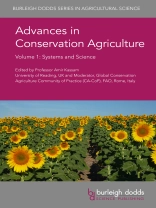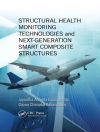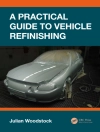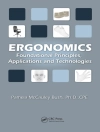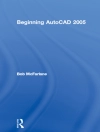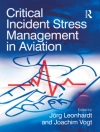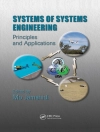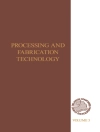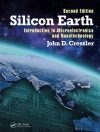- Reviews the development of CA systems globally and elaborates on science underlying the key CA system components.
- Assesses the latest evidence on improving soil and crop health and CA system resilience through the application of the core CA system principles.
- Includes case studies reviewing current science on optimising CA cropping systems involving cereal, legume, horticultural and tree crops as well as integrating livestock in CA systems.
Inhaltsverzeichnis
1.The need for Conservation Agriculture: Amir Kassam, University of Reading, UK; and Laila Kassam, Animal Think Tank, UK;
2.Development of Conservation Agriculture systems globally: Amir Kassam, University of Reading, UK; Rolf Derpsch, Consultant, Paraguay; and Theodor Friedrich, Food and Agriculture Organization of the United Nations (FAO), Italy;
3.Conservation Agriculture Systems: soil health and landscape management: Don Reicosky, Soil Scientist Emeritus USDA-ARS and University of Minnesota, USA;
4.The role of no or minimum mechanical soil disturbance in Conservation Agriculture systems: Theodor Friedrich, Food and Agriculture Organization of the United Nations (FAO), Italy;
5.The role and management of soil mulch and cover crops in Conservation Agriculture systems: A. Calegari, Agricultural Research Institute of Paraná State (IAPAR), Brazil; T. Tiecher, Federal University of Rio Grande do Sul (UFRGS), Brazil; E. B. Wutke, Research Agricultural Institute of Campinas (IAC), Brazil; L. B. dos S. Canalli, Agricultural Research Institute of Paraná State (IAPAR), Brazil; R. Bunch, Consultant, Brazil; and D. dos S. Rheinheimer, Federal University of Santa Maria, Brazil;
6.The role of crop and cropping system management in Conservation Agriculture systems: Peter Hobbs, Cornell University, USA; Christian Thierfelder, International Maize and Wheat Research Center (CIMMYT), Zimbabwe; Patrick Wall, Independent Consultant – Sustainable Agricultural Systems, Mexico; Raj Gupta, Center for Advancement of Sustainable Agriculture, India; and Ademir Calegari, Agricultural Research Institute of Paraná State (IAPAR), Brazil;
7.Management of vegetable Conservation Agriculture systems: Jamil Abdalla Fayad, Agricultural Research and Rural Extension Company of Santa Catarina (EPAGRI), Brazil; Jucinei José Comin, Federal University of Santa Catarina State (UFSC), Brazil; Alvaro Mafra, Santa Catarina State University, Brazil; Claudinei Kurtz, Agricultural Research and Rural Extension Company of Santa Catarina (EPAGRI), Brazil; Samira Jamil Fayad, Santa Catarina State University, Brazil; Nuno Rodrigues Madeira, EMBRAPA, Brazil; Darlan Marcheze and Leandro do Prado Wildner, Agricultural Research and Rural Extension Company of Santa Catarina (EPAGRI), Brazil; Ademir Calegari, Agricultural Research Institute of Paraná State (IAPAR), Brazil; and Arcangelo Loss, Cledimar Rogério Lourenzi, Monique Souza, and Guilherme Wilbert Ferreira, Federal University of Santa Catarina State (UFSC), Brazil;
8.Managing perennial Conservation Agriculture systems: orchards, plantations and agroforestry: Amir Kassam, University of Reading, UK; Emilio J. González- Sánchez, University of Cordoba and Asociación Española de Agricultura de Conservación Suelos Vivos (AEACSV), Spain and European Conservation Agriculture Federation, Belgium; Sim Choon Cheak, Sime Darby Research Sdn. Bhd, Malaysia; Zaharah A. Rahman, formerly Putra University, Malaysia; Julio Roman-Vazquez and Francisco Marquez-Garcia, University of Cordoba, Spain; Rosa Carbonell-Bojollo, Centro IFAPA Alameda del Obispo, Spain; Oscar Veroz-Gonzalez, Asociación Española de Agricultura de Conservación Suelos Vivos (AEACSV), Spain; and Dennis P. Garrity, World Agroforestry Centre (ICRAF), Kenya;
9.Integration of crop-livestock in Conservation Agriculture systems: John N. Landers, Independent Consultant, Brazil; Pedro Luiz de Freitas, Embrapa Solos, Brazil; Luiz Carlos Balbino, Embrapa Cerrados, Brazil; Júlio César Salton, Embrapa Agropecuária Oeste, Brazil; and Robélio Leandro Marchão, Embrapa Cerrados, Brazil;
10.Status of mechanization in Conservation Agriculture systems: Augusto Guilherme de Araújo, Agricultural Research Institute of Paraná State (IAPAR), Brazil; Brian Sims, Independent Consultant, UK; Jack Desbiolles, University of South Australia, Australia; Denizart Bolonhezi, Agronomic Institute of Campinas (IAC), Brazil; Enamul Haque, Murdoch University, Australia; He Jin, China Agricultural University, China; Jamil Abdalla Fayad, Independent Consultant, Brazil; Josef Kienzle, Food and Agriculture Organization of the United Nations (FAO), Italy; Leandro do Prado Wildner, Agricultural Research and Rural Extension Corporation of Santa Catarina State (EPAGRI), Brazil; Li Hongwen, China Agricultural University, China; Marcelo Zanella, Agricultural Research and Rural Extension Corporation of Santa Catarina State (EPAGRI), Brazil; Oussama El Gharras, National Agricultural Research Institute (INRA), Morocco; Richard Bell, Murdoch University, Australia; Roberto Peiretti, Global Farmer Network (GFN), Argentina; Saidi Mkomwa, African Conservation Tillage Network (ACT), Kenya; Sjoerd Willem Duiker, Pennsylvania State University, USA; and Theodor Friedrich, Food and Agriculture Organization of the United Nations (FAO), Italy;
11.Certification schemes for Conservation Agriculture systems: Juliana Albertengo, Iowa State University, USA;
12.Institutional and policy support for Conservation Agriculture uptake: Tom Goddard, Alberta Agriculture and Forestry, Canada; Gottlieb Basch, University of Evora, Portugal; Rolf Derpsh, Agricultural Consultant, Paraguay; Li Hongwen and He Jin, China Agriculture University, China; Muratbek Karabayev, International Maize and Wheat Improvement Center (CIMMYT), Mexico; Amir Kassam, University of Reading, UK; Ken Moriya, Ministry of Agriculture and Livestock, Paraguay; Roberto Peiretti, Agricultural Consultant, Argentina; and Hendrik Smith, Grain SA, South Africa;
Über den Autor
Dr Gottlieb Basch is a Full Professor in the Department of Plant Science at the University of Évora, Portugal. He is President of the European Conservation Agriculture Federation and has contributed to a number of EIP AGRI Focus Groups, EU Horizon and other research projects on more sustainable methods of crop cultivation.
